Filter by
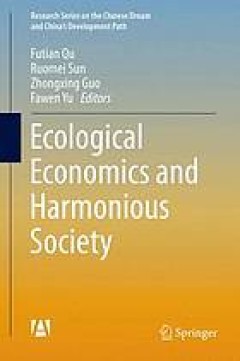
Ecological economics and harmonious society
This book is mainly about the examination of shifting in the field of ecological economics resulting from its evolution over the past three decades. It discusses the theory and methodology of ecological economics and development of ecological economics and related policies. It also analyzes the empirical study of ecological economics and the value of and compensation for ecological system servi…
- Edition
- -
- ISBN/ISSN
- 9789811004612
- Collation
- 288 pages
- Series Title
- -
- Call Number
- 338.927

Landslide Databases as Tools for Integrated Assessment of Landslide Risk
This doctoral thesis presents a novel approach to landslide risk assessment that explores the various dimensions of landslide risk in an integrated perspective. The research approach introduced here is tailored for use with landslide databases and Geographic Information Systems (GIS). A landslide susceptibility model is at the heart of this new approach, enabling to identify and delineate areas…
- Edition
- -
- ISBN/ISSN
- 978-3-319-20403-1
- Collation
- -
- Series Title
- -
- Call Number
- -
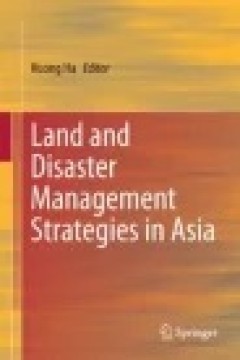
Land and Disaster Management Strategies in Asia
This book focuses on land and disaster governance in Asian countries. The Asian region has become increasingly vulnerable to natural disasters, including floods, cyclones, storms, earthquakes, drought, typhoons and tsunamis. Further, as a result of unsustainable changes being made in patterns of land use, catchment and coastal zones, increasing population density, migration patterns, and the sp…
- Edition
- -
- ISBN/ISSN
- 978-81-322-1976-7
- Collation
- -
- Series Title
- -
- Call Number
- -
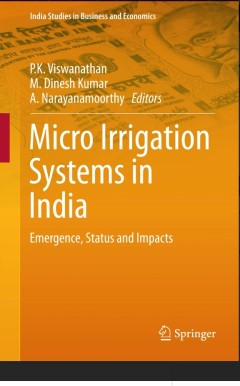
Micro Irrigation Systems in India
This book takes stock of micro irrigation systems (MIS), the technological intervention in India’s agricultural and water management sectors, over the past couple of decades. Based on empirical research from the major agriculturally dynamic states, viz., Gujarat, Rajasthan, Maharashtra, Tamil Nadu, Andhra Pradesh and Karnataka, the book provides a nuanced understanding and objective assessmen…
- Edition
- 1
- ISBN/ISSN
- 978-981-10-0346-2
- Collation
- XIV, 178
- Series Title
- India Studies in Business and Economics
- Call Number
- -
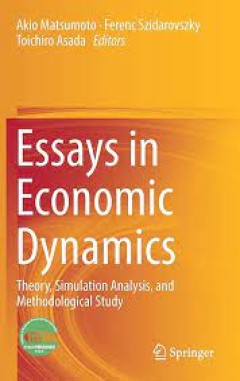
Essays in Economic Dynamics Theory, Simulation Analysis, and Methodological …
This book reflects the state of the art in nonlinear economic dynamics, providing a broad overview of dynamic economic models at different levels. The wide variety of approaches ranges from theoretical and simulation analysis to methodological study. In particular, it examines the local and global asymptotical behavior of both macro- and micro- level mathematical models, theoretically as well a…
- Edition
- -
- ISBN/ISSN
- 978-981-10-1521-2
- Collation
- 79 b/w illustrations
- Series Title
- -
- Call Number
- -

Toward Well-Oiled Relations?
With China replacing the United States as the world's leading energy user and net oil importer, its relations with the Middle East is becoming a major issue with global implications. Horesh and his contributors set out to analyse the implications of China's growing presence in the Middle East.
- Edition
- 1
- ISBN/ISSN
- 978-1-137-53978-6
- Collation
- XII, 239
- Series Title
- The Nottingham China Policy Institute Series
- Call Number
- -
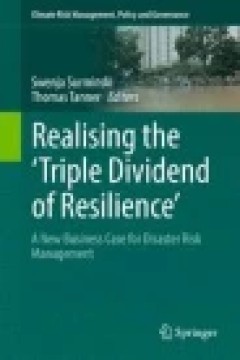
Realising the 'Triple Dividend of Resilience': A New Business Case for Disast…
Why aren’t we investing more in disaster resilience, despite the rising costs of disaster events? This book argues that decision-makers in governments, businesses, households, and development agencies tend to focus on avoiding losses from disasters, and perceive the return on investment as uncertain – only realised if a somewhat unlikely disaster event actually happens. This book develo…
- Edition
- -
- ISBN/ISSN
- 978-3-319-40694-7
- Collation
- -
- Series Title
- -
- Call Number
- 333.7
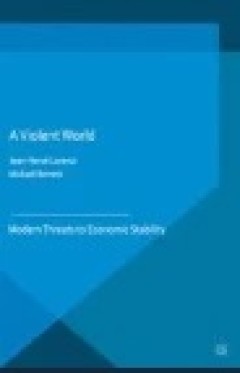
A Violent World: Modern Threats to Economic Stability
During the 1990s Francis Fukuyama announced the end of history. The 2000s showed how it is an illusion to imagine a peaceful world without conflict. In this book the authors explore how six major constraints are set to fix the trajectory of the global economy. Three of them are new: the aging population, the failure of technical progress, and the scarcity of savings. The other three have b…
- Edition
- Ed. 1
- ISBN/ISSN
- 978-1-137-58993-4
- Collation
- XIV, 181
- Series Title
- -
- Call Number
- 339 LOR v
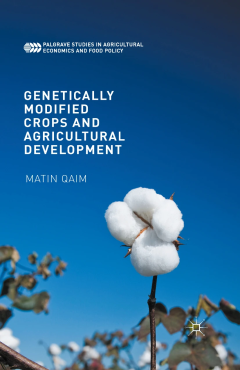
Genetically Modified Crops and Agricultural Development
“This book is the second publication in the ‘Palgrave Studies in Agricultural Economics and Food Policy’ series, and targets both professional and lay audiences. … this book can be recommended to a wide readership; excellently written, it is one of the first books to address both the technical and policy dimensions of GMCs in development.” (George H. L. Rothschild, Food Security, Vol.…
- Edition
- -
- ISBN/ISSN
- 978-1-349-56167-4
- Collation
- XVII, 206
- Series Title
- -
- Call Number
- 330 QAI g
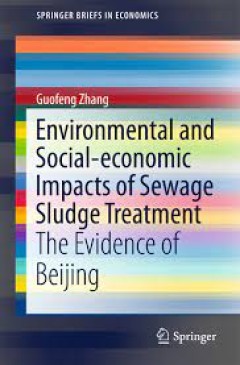
Environmental and Social-economic Impacts of Sewage Sludge Treatment The Evi…
This book presents an experimental simulation of sewage treatment, which is designed to evaluate the environmental and social-economic impacts of integrated sewage treatment policies. The author puts forward a comprehensive linear optimization simulation model that takes the environmental, energy and economic systems into consideration. Beijing was selected as a typical Chinese city for the pur…
- Edition
- -
- ISBN/ISSN
- 978-981-287-948-6
- Collation
- 28 b/w illustrations, 5 illustrations in colour
- Series Title
- -
- Call Number
- -
 Computer Science, Information & General Works
Computer Science, Information & General Works  Philosophy & Psychology
Philosophy & Psychology  Religion
Religion  Social Sciences
Social Sciences  Language
Language  Pure Science
Pure Science  Applied Sciences
Applied Sciences  Art & Recreation
Art & Recreation  Literature
Literature  History & Geography
History & Geography